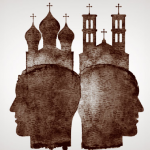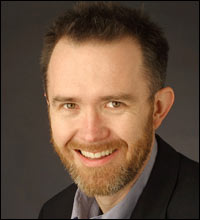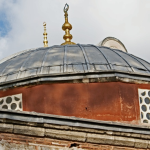
Deprecated: trim(): Passing null to parameter #1 ($string) of type string is deprecated in /home/aoiusa/public_html/wp-content/plugins/sexybookmarks/public.php on line 388
Deprecated: trim(): Passing null to parameter #1 ($string) of type string is deprecated in /home/aoiusa/public_html/wp-content/plugins/sexybookmarks/public.php on line 394
Deprecated: trim(): Passing null to parameter #1 ($string) of type string is deprecated in /home/aoiusa/public_html/wp-content/plugins/sexybookmarks/public.php on line 400
Source: The American Conservative | By Rod Dreher
– Since the Second World War, Roman Catholicism has had enormous influence on American intellectual conservatism. The postwar rebirth of conservatism had two sources: libertarianism—a reassertion of classical liberalism against statism—and cultural traditionalism. For Russell Kirk and other leading traditionalists of the era, the Roman Catholic church, with its soaring intellectual edifice and unitary vision of faith and reason, matter and spirit, was the natural conservator of Western civilization and the sure source of its renewal after the catastrophes of the 20th century.
The Catholic contribution to conservative intellectual life has been hard to overstate. It is impossible not to notice the steady stream of right-of-center intellectuals into the Roman church: Kirk himself, his libertarian sparring partner Frank Meyer, early National Review luminaries such as L. Brent Bozell Jr. and Willmoore Kendall, and many more. One does not—or should not, at least—convert to a religion for any reason other than one thinks it is true. But there is something about the intellectual culture of Catholicism that draws thoughtful conservatives, even amid an exodus of rank-and-file American Catholics from the church.
Prominent intellectual conversions have been notable among Evangelicals, many of whom find in the Roman church a more solid theological, philosophical, and historical grounding for their faith. As the Baylor University philosopher and former Evangelical Theological Society head Francis Beckwith told Christianity Today after his 2007 return to the Catholicism of his youth, “We have to understand that the Reformation only makes sense against the backdrop of a tradition that was already there.”
Much less well known is the small but growing group of American conservative intellectuals who embrace Christianity, but not in its Western forms—who are neither Catholic nor Protestant. There is a distinct set of conservative converts to Eastern Orthodoxy, which depending on your perspective either left, or was left by, Roman Catholicism in the Great Schism of 1054.
Since then, Western and Eastern Christianity developed separately, under very different social and cultural conditions. It is often wrongly assumed that Orthodoxy is little more than Catholicism without a pope, plus an ethnic gloss—typically Greek, Slavic, or Coptic. In fact, the differences with Catholicism are substantial and to a significant degree account for why these tradition-minded conservatives have found themselves looking past Rome to the churches of the ancient East, whose theology and liturgy centers on the thought and practice of Christianity’s first 500 years.
When I left Roman Catholicism for Orthodoxy in 2006, an intellectual Catholic friend said he couldn’t understand why I was leaving a church with such a profound tradition of intellectual inquiry—Scholasticism and its descendants, he meant—for one so bound up with mysticism. The comment was unfair, in that my friend didn’t understand that the Orthodox are not Pentecostals with incense and liturgy. Orthodoxy is about far more than religious experience; its theology is extraordinarily deep.
But his remark was accurate in that Orthodoxy is deeply skeptical of rationalism in religion. Orthodoxy always keeps before it the primacy of the mystical encounter with God, both through the sacraments and through the early church’s practice of hesychasm, or inward prayer.
University of South Carolina theologian James Cutsinger says that the point of all religion is “not only to experience God, but to be transformed into His likeness”—a process called theosis. For Cutsinger, a convert from Protestantism, the mystical theology of the Orthodox Church is far more important than Orthodoxy’s historical claims to be uniquely faithful to the apostolic tradition.
“Orthodoxy is alone among the Christian possibilities in offering its adherent the ancient treasures of a contemplative method, in the form of hesychasm,” Cutsinger has written. “Not that there aren’t Catholic and even Protestant mystics and sages, to say nothing of saints. That’s not in question. But which of them is able to tell the rest of us how to attain to his vision, let alone transformation? Where is there a step-by-step, practical guide to theosis outside the Christian East?”
Hugh O’Beirne, a corporate attorney in Princeton, NJ, was once an enthusiastic Catholic and fellow traveler of the conservative Opus Dei movement. He came to believe, though, that Latin Christianity is too bound up in legalism and philosophical speculation—a legacy of the Middle Ages. Though he remains an admirer of Catholicism, O’Beirne converted to Orthodoxy 12 years ago.
“Catholicism’s strong analytic ability overshadowed the primal religious experience,” O’Beirne says. “I think that’s a canard Protestants often level against Catholics, but there’s something to it.”
“I reject the idea that because you can talk about religious truths more exactingly that you have gained any more intellectual insight into them,” he continues. “Remember the mystical experience Aquinas had at the end of his life, which made him describe all that he had written as ‘straw’? After that, how can Catholics complain about our hesychastic approach?”
For most converts, Orthodoxy’s claim to be alone in its unbroken succession with the church of the Apostles—a claim also made by the Roman church—is a significant factor in conversion. Like Catholicism, Orthodoxy has an episcopal structure. Unlike Roman Catholicism, the Orthodox churches are not governed centrally, with power flowing downward from an ecclesial monarch (the Pope) at the center, but are run collegially, by bishops in council. The Orthodox view papal primacy as a Latin innovation driven by Frankish politics. As one Orthodox professor told me, “It’s not true that Catholicism is conservative. It is, in fact, the mother of all religious innovation, and has been for more than a millennium.”
Orthodoxy’s deep conservatism, for better or worse, has much to do with its ecclesiology. Little can change in Orthodoxy’s doctrinal teachings outside of an ecumenical council—a gathering of all the bishops of the church. Though there is some controversy among the Orthodox about when the last ecumenical council was, the last one everyone agrees on was in the year 787. Though some contemporary Orthodox theologians lament that Orthodoxy has no effective mechanism for updating doctrine, others see what innovation has done to Western Christianity—the chaos following the Second Vatican Council, for example, and the endless multiplicity of Protestant denominations—and count this procedural stasis as a blessing.
Baltimore writer Frederica Mathewes-Green, perhaps the best-known American convert, contends that Orthodoxy’s stability in this regard appeals to conservative Christians weary of doctrinal and liturgical tumult within their churches and traditions.
“The faith stays the same, generation to generation and from one continent to the next,” she says. “It’s kept by community memory, grassroots, rather than by a church leader or theological board. So someone who wanted to challenge it doesn’t have any place to start, nobody with whom to lodge a protest. I think this is a resource within Orthodoxy, a really central and indelible one, that helps it resist the winds of change.”
This is not to say that Orthodoxy exists in a bubble untouched by the cultures in which Orthodox Christians live. In fact, there is widespread agreement among believers that the worst problem Orthodoxy faces is phyletism—a heresy that makes the mission of the church perpetuating ethnic culture. This has a particularly troubling effect in the United States, blocking Orthodox unity and reducing parish life in some places to the tribe at prayer.
On a practical level, any conservative who believes he can escape the challenges of modern America by hiding in an Orthodox parish is deluded. All three major branches of Orthodoxy in America have suffered major leadership scandals in recent years. And while Orthodox theology does not face the radical revisionism that has swept over Western churches in the past decades, there are nevertheless personalities and forces within American Orthodoxy pushing for liberalization on the homosexual question. And in some parishes—including St. Nicholas OCA Cathedral in Washington, D.C.—they are winning victories.
Orthodoxy does, however, have certain advantages over both Protestantism and Catholicism. Men who convert often say that Orthodox worship and practice –especially the ascetic rigor—feels more masculine than the more emotional, consumer-driven atmosphere in the churches they left behind. “When I go to Russian churches, I see men; when I visit Protestant churches, I see a lot of men crying and holding each other,” says one convert. “And we don’t have Dunkin Donuts in the narthex.”
Although Orthodoxy lacks the administrative unity and strong teaching authority (Magisterium) of Catholicism, the theological and liturgical atmosphere in Orthodox parishes is usually far more traditional than in contemporary American Catholic parishes. Converts from Catholicism fed up with post-Vatican II liberalism frequently observe that Orthodoxy is what Catholicism once was.
When Frederica Mathewes-Green and her husband, now an Orthodox priest, realized that they could no longer remain in the fast-liberalizing Episcopal Church, they assumed Rome would be their new home. They were put off by the drab modern Catholic liturgy, which struck them as too irreverent. But there was more.
“We were also concerned that so much of American Catholicism, in practice, was theologically and socially liberal,” she says. “We were told that that was not important, the important thing was that the doctrine taught by Rome was correct. But it wasn’t enough for us. We could see that things every bit as strange as current Episcopalian doctrine was being promoted and taught all over American Catholicism. It did not look like a safer place for our kids to grow up.”
Though many vote Republican, nearly all the conservative intellectuals I spoke with for this essay express gratitude that Orthodoxy avoids the “Republican Party at prayer” feeling that pervades some Evangelical churches.
“Kirkean, Burkean conservatism finds its paradise in Orthodoxy,” says a professor who teaches at a Southern college. “It is non-ideological and traditionalist to its bones. It collects and preserves and quietly presents the organically grown wisdom of the past in a way that’s compelling and, literally, beautiful.”
Alfred Kentigern Siewers, a literature and environmental studies professor at a mid-Atlantic college, says the social teachings of the church fathers, as adapted by modern Russian Orthodox theologians, taught him to think of society “more as an extended household, and less as an impersonal economy, whether free market or socialist.”
“Orthodoxy taught me how Christian notions of human dignity are more central to being authentically human than impersonal notion of rights by themselves alone,” says Siewers. “I think Orthodoxy encourages an awareness of the importance of living tradition and community and the need for caution in embracing either free market or socialist economic models as social models.”
In part because Orthodox countries did not undergo the Enlightenment, the Orthodox way of thinking about social and political life is so far outside the Western experience that it can sometimes seem barely relevant to American challenges. On the other hand, Orthodoxy’s pre-modern traditionalism can be a rich new source of spiritual and cultural renewal.
Pope Benedict XVI, who has made generous and well-received overtures to Orthodox Church leaders, has said that the regeneration of Western civilization will depend on a “creative minority” of Catholics willing to live the Gospel in a post-Christian world. Whatever role Orthodox Christians in America have to play in this drama, it will certainly be as a minuscule minority. In worldwide Christianity, Orthodoxy is second only to Roman Catholicism in the number of adherents. But in the United States, a 2010 census conducted by U.S. Orthodox bishops found only 800,000 Orthodox believers in this country—roughly equivalent to the number of American Muslims or Jehovah’s Witnesses.
 Yet converts keep coming, and they bring with them a revivifying enthusiasm for the faith of Christian antiquity. One-third of Orthodox priests in the U.S. are converts—a number that skyrockets to 70 percent in the Antiochian Orthodox Church, a magnet for Evangelicals. In the Greek Orthodox Church, around one-third of parishioners are converts, while just over half the members of the Orthodox Church in America came through conversion. For traditionalist conservatives among that number, Orthodoxy provides an experience of worship and a way of seeing the world that resonates with their deepest intuitions, in a way they cannot find elsewhere in American Christianity.
Yet converts keep coming, and they bring with them a revivifying enthusiasm for the faith of Christian antiquity. One-third of Orthodox priests in the U.S. are converts—a number that skyrockets to 70 percent in the Antiochian Orthodox Church, a magnet for Evangelicals. In the Greek Orthodox Church, around one-third of parishioners are converts, while just over half the members of the Orthodox Church in America came through conversion. For traditionalist conservatives among that number, Orthodoxy provides an experience of worship and a way of seeing the world that resonates with their deepest intuitions, in a way they cannot find elsewhere in American Christianity.
“From the outside, Orthodoxy seems exotic,” an Orthodox academic convert tells me. “From the inside, it feels like home.”
Rod Dreher is a TAC senior editor. His blog is www.theamericanconservative.com/dreher.


